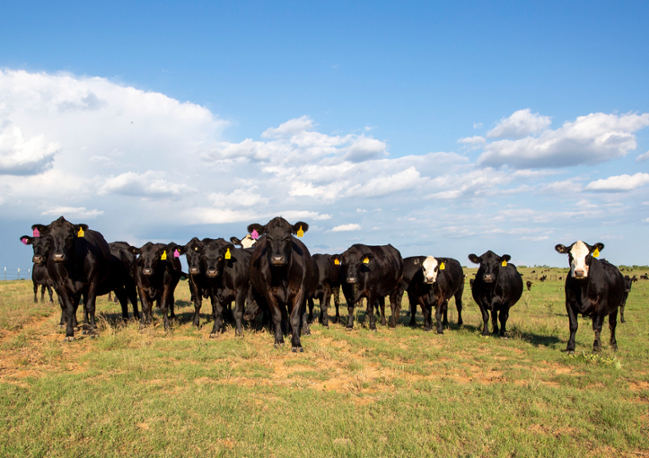Research Areas & Faculty
Cattle Production, Nutrition and Health
Animal science faculty at WTAMU are engaged in highly applied research to discover new scientific knowledge of animal production, nutrition, management, and health in beef and dairy cattle.
Research Faculty:
Equine Nutrition and Health
Research Faculty:
Genetics and Genomics
Research Faculty:
Integrated Resource Management (Plant, Soil, Grazing)
PSES faculty are involved in integrated resource/range management research to improve deteriorating soil health, plant-soil water relationships, reduce soil erosion and land degradation, and develop ways to improve food and feed production sustainability in the 21st century and beyond.
Research Faculty:
International Agriculture and Development
WT Faculty have researched the international arena through USAID funded research projects through Sorghum and Millet Innovation Labs. The research in international agriculture and development ensures food security in developing countries, especially in Africa and Asia. Recent funding from the Binational Fulbright Commission in Egypt for research activities to ensure food security through water management is one of the examples of such projects.
Research Faculty:
Meat Science, Quality, and Safety
Meat science faculty in collaboration with some animal science faculty conduct research on improving meat quality, food safety, innovations in meat science, genomics, transgenic technology to increase muscle mass.
Research Faculty:
Dr. Travis Tennant
Ogallala Aquifer, Irrigation, and Regional Economy
WTAMU is an active partner in the research consortium on the USDA ARS Ogallala Aquifer Program. WT Faculty have been leading research efforts to improve water use efficiency, irrigation efficiency, assess the economic impact of declining water availability from Ogallala Aquifer on the irrigated agriculture and regional economy, and suggesting water conservation strategies to extend the economic life of Ogallala Aquifer to sustain rural communities.
Research Faculty:
Waste Management and Environmental Sciences
Research is underway to find ways to improve air quality and reduce greenhouse gases in farming operations, use of animal waste as an alternative energy source, and dairy manure priming to study the effect of the application of large amounts of dairy manure on crop production, soil health, economic viability, and soil water holding capacity.
Research Faculty:
Research Facilities
Caviness Meat Science and Innovation Center
The Texas A&M University System Board of Regents accepted a significant gift of $2 million from Caviness Beef Packers, then approved the name of the University’s new state of the art meat lab as the Caviness Meat Science and Innovation Center in June 2018. This work is an excellent example of collaboration between West Texas A&M University and a local family beef processing business. The partnership provides continued research opportunities for WTAMU faculty and students in the meat science programs.
Beef Carcass and Research Center
Beef Carcass and Research Center (BCRC) established in 1992, housed in The Caviness Meat Science and Innovation Center, serves the US beef industry by collecting beef harvest and grading data and is responsible for the NCBA Cattlemen's Carcass Data Service
USDA Cattle and Carcass Grading Correlation Center
WTAMU is one of three regional USDA Cattle Carcass Grading Correlation Centers, also housed in The Caviness Meat Science and Innovation Center. The center will educate and train stakeholders in the region in the grading of feeder cattle, fed cattle and beef carcasses.
Center for Advancing Food Animal Production
In the 86th legislature session in 2019 and Texas Gov. Greg Abbott allocated $4 million for a two-year period to establish a new Center for Advancing Food Animal Production in the Texas Panhandle at the West Texas A&M University (WTAMU). Of the total legislative appropriated funds, $2 million was designated for WT’s Paul Engler College of Agriculture & Natural Sciences, and an additional $2 million was set aside for the Texas A&M College of Veterinary Medicine’s Veterinary Education, Research & Outreach (VERO) program.
The state funded initiative for the Center for Advancing Food Animal Production will provide the resources necessary for additional teaching and research faculty, graduate assistantships, and staff of WTAMU and the TAMU System partners to increase veterinary specializations in the large animal industry as well as complement existing and expanding programs in agricultural business and economics, animal nutrition, animal health, pre-and post-harvest food science/food safety, pre-veterinary medicine and environmental sciences. Funding for this center will allow WT and VERO to add seven new faculty members, ten graduate research assistants and six support staff positions to their programs.
Research Feedlot
The WTAMU Research Feedlot is designed to be a scale model of the larger commercial feedlots in our region, including a modern feeding system and advanced technologies to promote research and development. The WT Research Feedlot markets between 1,200 and 1,400 fed cattle annually from various research projects involving animal health, nutrition, and management.
Semi-Arid Agricultural Systems Institute
The Semi-Arid Agricultural Systems Institute, formerly known as Dryland Agriculture Institute, is currently led by prominent researcher, Dr. Craig Bednarz. The joint partnership with Texas A&M AgriLife Research allows Dr. Bednarz to lead research, instruction and service programs of the Institute by addressing challenges faced by semi-arid agriculture systems in the Texas Panhandle and surrounding area.
The institute researches and develops technologies to implement solutions for improving the sustainability of dryland agriculture in the light of depleting water resources for irrigated agriculture.
Veterinary Education Research Outreach (VERO) Center
Established in 2009, VERO is the partnership between the Texas A&M College of Veterinary Medicine
& Biomedical Sciences (CVMBS) and the West Texas A&M University (WT) Paul Engler College of
Agriculture & Natural Sciences to bring Veterinary Education, Research, & Outreach to the Texas Panhandle.
Resources for Researchers
- Funding Opportunities (External and Internal)
- Proposal Development
- Sponsored Research Services
- Other Collaborators/Research Partners

